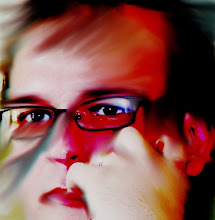
Monday, July 12, 2010
Friday, July 2, 2010
A Book Perfect for Harron, Campion or Pierce
Besides, I think in the right hands this would make a wonderful film. I've often wondered why there haven't been more adaptations of Oates' work.
Incidentally, there's a Facebook group dedicated to lobbying to get Joyce Carol Oates a much deserved Nobel Prize in Literature. Pop over. The more members the better.
"The Tattooed Girl" by
It actually recalls the underhanded sadism that was in "Where Are You Going, Where Have You Been," which just so happened to be my introduction to Oates.
This story will in turns surprise, repulse and touch you.
Early in the book, we are introduced to a character, Dmitri the waiter, who doesn’t seem like a bad guy in the first few paragraphs, and then, as Oates methodically peels back his layers, we are shocked to find that he is a simple sociopath.
His brutality is truly sickening and through his character, Oates manages to do the impossible.
As I was reading one passage, I felt ashamed of myself.
Not because I had done anything even close to that, but because I was a man.
Or rather because I was human.
 The characters in this book are more than dysfunctional; they are simply broken.
The characters in this book are more than dysfunctional; they are simply broken.
It’s odd but strangely touching how two people, so damaged they could hardly pass for functional, develop this kind of affection, friendship, love and then complete dependency.
This book is filled with surprises and I’m not talking about show-offy twists in the vein of Shyamalan or Palahniuk. (Although for the record, I do think Palahniuk is the exception to the rule as far as dramatic surprises go. He is one of the few that can pull it off and make it feel organic.)
Oates amazes us with how quickly the hatred of her characters can turn to love and vice-versa.
She offers insight into why some people love monsters unconditionally.
 Another surprise is the tender romance that blossoms between
Another surprise is the tender romance that blossoms between
What sets Oates apart is that most writers feel a need to define their characters whereas Oates realizes that this is not always possible since most people don’t know who they are themselves.
This is an incredible, devastating novel and seriously, whether you’ve read Oates or not, whether you’ve liked her before or not, give this one a shot because not only does Oates understand the craft of writing better than most writers, she understand what it means to be human more than most people.
That sounds cliche and pretentious at the same time, but it's true.
And, (I used to be in the habit of tagging out blogs this way. I'm not sure why I stopped. It's a good note to leave things on.) in case y
ou care, I'm listening to a beautiful new 180g re-issue of:




